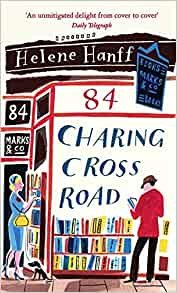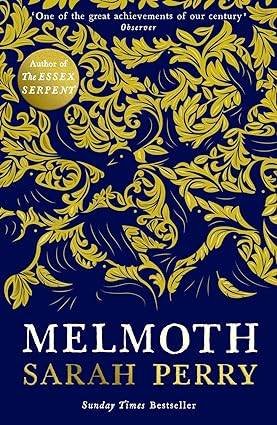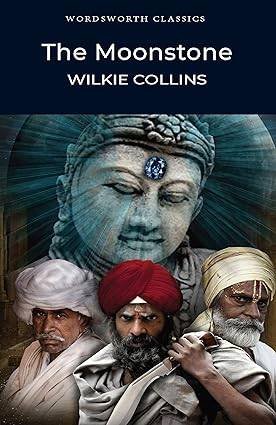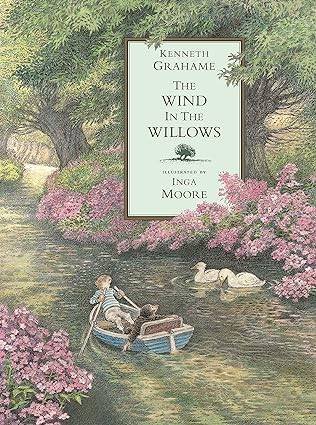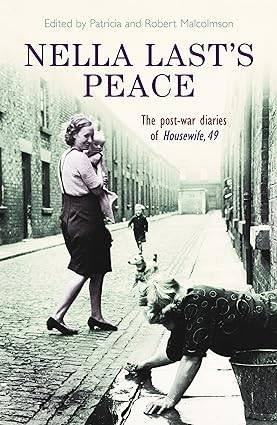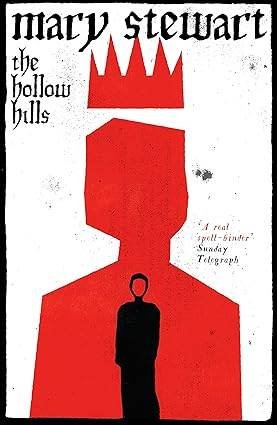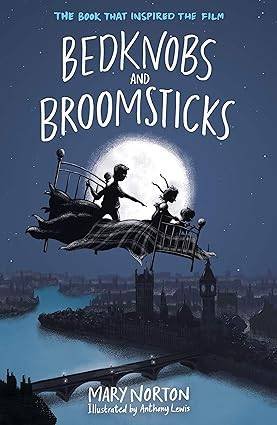Home » Book Reviews » David Mitchell » Unruly by David Mitchell
Possible spoilers ahead
I’m really keen to read this book about England’s kings and queens as I like history and love watching David Mitchell, and I am a little intrigued how he will come across as a writer, having never read any of his books before.
Straightaway I’m enjoying the book! I like his style of writing, it’s relaxed and chatty and he seems like he’s talking to the reader. It’s entertaining to read, yet he explains things well and it feels very approachable, and I can imagine it will also appeal to people who aren’t hugely into history. It seems to be written in the style of his character on Would I Lie To You, quite assertive and determined with his point of view, and I don’t know why that surprised me but I had kind of imagined him as slightly different to that in real life, I guess I had presumed he was more like his character in Ludwig, more diffident and not quite so confident really. Maybe he’s somewhere between the two, but obviously I don’t know the man, tee hee, and I’m aware it’s foolish to make judgements on someone’s character based on how they may appear on tv!
There are so many interesting things that I’m learning from this book, and I have picked out some of the ones that will stay in my mind and have prompted me to read more about. I am fascinated with Offa’s Dyke (the earthwork which marks the border between England and Wales), I’d never heard of this before and wow, what an undertaking, and I imagine it would be amazing to walk along, feeling all that history around you, and that’s now on my list of things to do. I have also always been intrigued by kings’ nicknames and why they were given these, such as Edward the Confessor and Aethelred the Unready, and now I know! I am also quite blown away to learn that after the Romans left England, all the wonderful efficient systems that they’d created just fell into ruin as it was too daunting for the Anglo-Saxons to keep up, I hadn’t really fully understood before that the term ‘The Dark Ages’ describes a period when people effectively retreated back in time to a far more simpler basic life, and it seems such a tragic waste that as they didn’t know how to use the amazing systems that the Romans had created, these systems were just left to rot, and I also can’t get over the haunting image in my mind of London being abandoned for 200 years throughout that period, with its wonderful city walls just falling into disrepair, it’s almost shocking to me to envisage when I consider the London I know today (and makes me wonder if there’s a novel written about this time period, with an abandoned London and perhaps a few souls surviving within the city walls, I will have to google!). I also find it interesting to learn when many of the traditions of the monarchy which are familiar to me today were first introduced, such as wearing a crown being first introduced by Richard 1st (Richard the Lionheart, I’m back to my love of kings’ nicknames!) and that he also introduced the ‘Dieu et mon droit’ royal motto which has been used ever since, and that the numbering of monarchs began with William 1st (William the Conqueror, another nickname!) and also the start of castle building began from his time too (and he was apparently extremely prolific with these castles, so I have him to thank for many of my favourite castles that I love to visit and explore!). I am also surprised to learn that there was originally no such place as Battle, that the town was named after the Battle of Hastings! I am reminded too with this book’s mention of the Battle of Towton, as I know York and Wakefield fairly well but have never been aware of a place called Towton (which looks to be near those places), which always strikes me as odd as it seems such a historically momentous place with it having the title of the bloodiest battle on English soil, so I’ve been prompted to look into the place of Towton more and I see it is described as just a small village near Tadcaster and it sounds like the battle happened there because the opposing armies were forced to meet due to the bottleneck of a small bridge, and it was called the Battle of Towton afterwards as this was the closest place to the battle site but it wasn’t that Towton was a large town where the opposing forces had set up camp (as I had previously imagined and had then been surprised to find no large town called Towton), I will have to make a point of visiting Towton though, it sounds like there is a Towton Cross and various noticeboards to mark the event and site, and I see too on Wikipedia that Richard 3rd constructed a chapel and graveyard for the bodies from the battle which seems very thoughtful and respectful of him (I’m a big fan of Richard 3rd, and I did have a slight issue (detailed later…) with David about Richard 3rd!). And finally (though there are so many more things that really interest me and I could continue listing lots and lots!), I am fascinated that the reason we use the names ‘beef’ and ‘pork’ for meat, rather than the names ‘cow’ or ‘pig’ as we do with chicken and lamb for instance, is due to the nobles eating those meats and them speaking French rather than English (so ‘boeuf’ and ‘porc’ in French)!
I am chuckling at lots of things in this book, as he has such a comical way of expressing himself (obviously so, he is a talented comedian after all!). I’ve been jotting down some of my favourite things, so I can chuckle over them again. I love his attitude of ‘it’s more fun to keep a bit of mystique about what’s actually going on’, which he stated in relation to the uncertainty about exactly why the Vikings came to England, whilst he also acknowledges that professional historians would no doubt disapprove of this mystique attitude! I also heartily enjoyed his explanation of how he had personally chosen a side between Harold Godwinson and William the Confessor, along with his insistence that most people do take sides, even professional historians although they would deny that they do. Also I chuckled at him wondering if William the Conqueror and Henry 8th are together in hell as all the brutal things they’d done probably destined them for hell but he also wonders if because they were such well-connected men they might actually have managed to sneak into heaven, tee hee! And one of my favourite bits is him speculating on what the women stitching the Bayeux tapestry were saying to each other, and now that’s in my mind (having never wondered about it before) I keep coming back to it again and again, wondering myself what they were chatting about! And I think my all-time favourite bit which makes me laugh is his reflection on the environmentally-sound aspect of arrows as they can be reused, but he does acknowledge the disadvantage of this being the difficulty of ‘shyly walking’ up to the enemy to ask for your arrow back, I love that image of the soldiers shyly walking up to collect their arrows, tee hee! I like too his personal quirkiness with which bits of history he has picked out to discuss, and I also chuckled at him saying in the Further Reading section at the end of the book that the reader might like to try a thriller or whodunnit to read next!
There were a couple of things I’ve had a slight issue with David about however…! One issue is his scornfulness about King Arthur, with him saying many times (many many times in fact, including in the very first sentence of the first chapter of the book!) that King Arthur didn’t exist, and almost seeming to mock those who like to hope that he did exist. I love the King Arthur tales, particularly (his uncle) Ambrosius’ aim of uniting Britain and bringing about peace, which Arthur continued to try and achieve, and a part of me has always hoped that these characters were real (or at least someone very like them who then gave rise to these characters) as I have been quite inspired by them. I guess it probably is unlikely that they existed and I must deal with that (sob!), but I have always held onto the thought that as history was passed down by word of mouth at that time rather than being written down then there is no proof that they didn’t exist (as indeed there is no proof that they did exist), and it did just jar a little with me to have them poo-pooed in quite such a stark manner in this book (but perhaps that’s just me holding onto a dream and not wanting it to be shattered!). And arrrgh, my second issue is that he thinks that Richard 3rd killed the Princes in the Tower! I passionately believe that Richard was innocent of that (and I like the two theories that either Henry 7th killed the princes as he had had to make them legitimate in order to marry their sister Elizabeth but this then resulted in the boys being ahead of Elizabeth in line to the throne so it therefore benefitted Henry to remove them, or that the princes weren’t actually killed as boys but were instead helped to safety abroad by Richard who had realised that Henry would view them as a danger and then when the grown-up princes later challenged his throne Henry stated that their claim of being the princes was false because they had been murdered as boys and blamed Richard for their murder). I view Richard as a bit of a hero with all the wonderful things he did to help the country (such as granting the right to bail and preventing the intimidation of juries, and making peace with Scotland), and with how tragically he died (so young, just aged 32, and yet so brave with him entering into battle and being the last British monarch to die in battle, and being let down by the double-crossing of the Stanleys), so I would have liked to see David praise Richard a bit more (but obviously it’s his book and his views, quite rightly so!).
But (if I let those couple of issues go, tee hee!) I thoroughly enjoyed reading this book and gained so much from it, both educationally and amusingly, and I will read more of his books. I see he has published his autobiography, called Back Story, so I look forward to reading that. In the meantime, I will re-read Josephine Tey’s The Daughter of Time which puts forward a compelling case of Richard 3rd being a hero and being innocent of killing the princes, and I’ll re-read Mary Stewart’s The Crystal Cave, my favourite book of her trilogy, in order to indulge my wistful hopes about King Arthur and Ambrosius having really existed (oh dear, it seems I’m not quite ready to let those issues go, tee hee!). And as I said, I was absolutely fascinated with the image of London being abandoned and falling into decay after the Romans left and all their wonderful efficient systems just being unused, which then reminded me of a couple of books I’d read recently on similar themes (though more modern times) so I will re-read those books too, these being John Wyndham’s The Day of the Triffids with the narrator’s haunting description of walking and driving through a mostly empty London and seeing the buildings of power such as the Houses of Parliament just crumbling and plants and weeds taking these structures over and the nation’s people being forced to live in a very basic way due to not having the clever inventions and technology they had previously relied on, and also HG Wells’ The War of the Worlds when the narrator stands on Primrose Hill looking over the waste of London and contemplating how quickly such a powerful city had been destroyed but hoping that ‘this dear vast dead city of mine be once more alive and powerful’. And I have googled to see if there are any books which are set in London in the Dark Ages, and eeek I see there are, and a couple of them have tempted me, these being Dark Earth by Rebecca Stott, and London by Edward Rutherfurd (especially as I already have Rutherfurd’s book Paris on my bookshelf waiting to be read, which looks wonderful).


